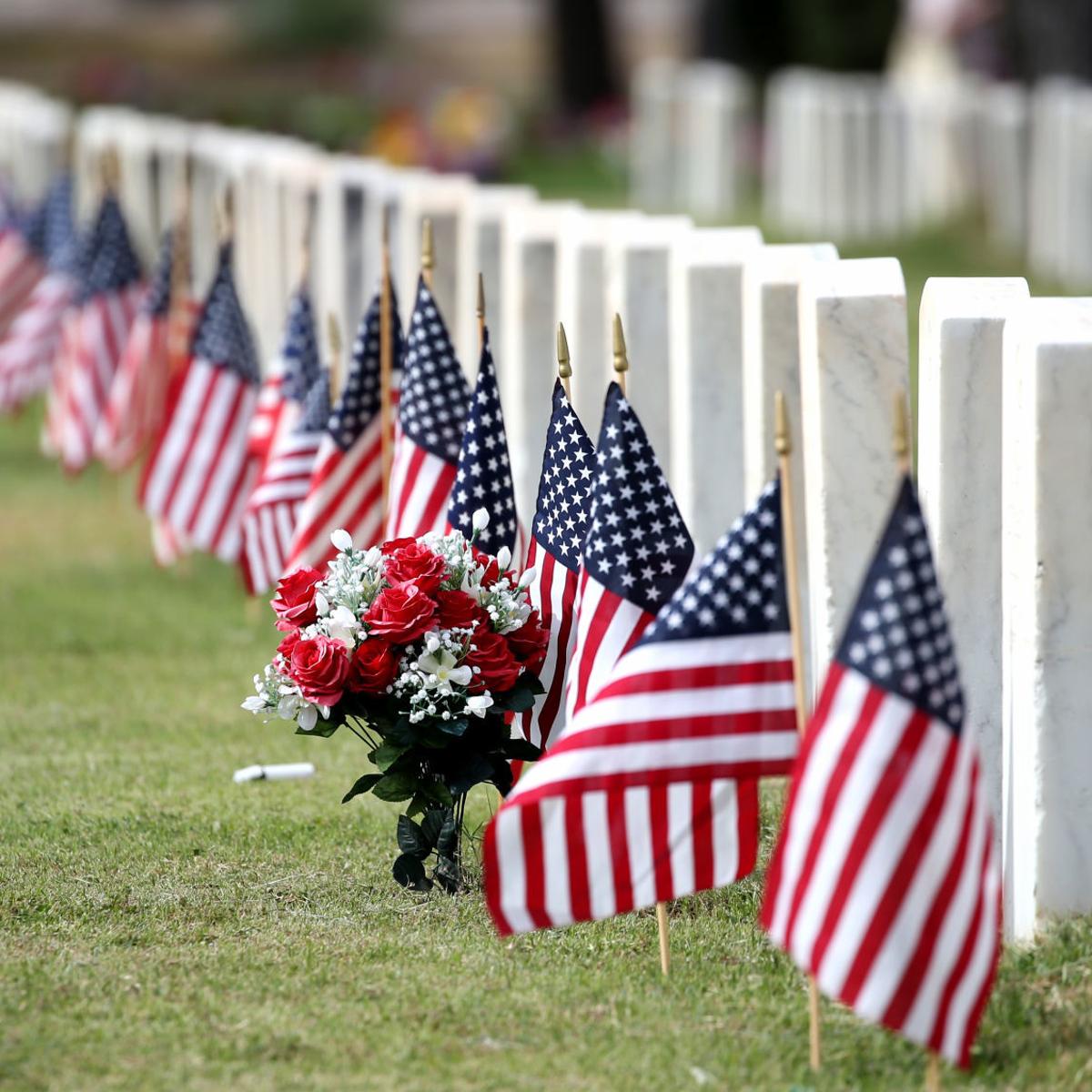News
Memorial Day By Brother Jim Hensal ‘67
 From the time when I was a youngster through my college years Memorial Day meant something different than it does to me today. Coming every year at the end of May, it was a day for celebration, marking the arrival of flowers, green leaves and warm temperatures, along with the end of the school year and the beginning of summer. Dad had the day off and we always did something fun, like play golf or barbecue outside.
From the time when I was a youngster through my college years Memorial Day meant something different than it does to me today. Coming every year at the end of May, it was a day for celebration, marking the arrival of flowers, green leaves and warm temperatures, along with the end of the school year and the beginning of summer. Dad had the day off and we always did something fun, like play golf or barbecue outside.
The year I turned eighteen I graduated from high school, entered college and joined Phi Delta Theta Fraternity. I also received a gift from Uncle Sam called a draft card, but it contained a proviso that if I stayed in college for four years I would not be called up. I loved college. We studied hard and played hard. During my freshman year news stories would sporadically run about trouble in some small country, halfway around the world called Vietnam. I paid little attention.
I had two types of friends in the fraternity. The first were more like me. We shared our most intimate thoughts about our hopes, fears and ambitions. They were my best friends, and even today I keep in contact with many of them. The second were less like me, but they were good fellows and I enjoyed sharing some fun times with them. That was as far as the friendship went.
Al Lofton was in the second group. His full name was Joseph Alan Lofton. Having been raised to obey authority, I was a straight arrow. Al was more reckless. I remember one evening we heard that a fraternity brother had been dumped by his girlfriend, who was a member of Kappa Kappa Gamma sorority. That morning at about 2 A.M. Al persuaded me to follow him to sorority row, where we turned our backs, dropped our pants, and mooned the Kappa house. Fortunately, neither the Kappas nor the police saw us, so we had defended our brother’s honor without going to jail.
I remember another time Al accompanied me to a rush party about forty miles south of town. The party went into the wee hours, and when it came time to drive back, I felt I’d had too many beers, so I handed the keys to Al. I quickly fell asleep on the passenger seat as we sped northward on the freeway, but I was awakened just as quickly by some strange noise. Al had decided the best way to maintain the car on the freeway was to keep the hood ornament on the front of the car pointed over the broken white lines that separated the two northbound lanes. Only as I stared out the window, I saw the hood ornament was following the solid white line that marked the edge of the right lane, so the car was rumbling along halfway on the highway and halfway on the berm. Being a brilliant student, I realized that Al was drunker than I was. Following my shout of terror Al stopped and graciously gave me back the keys. We proceeded up the highway with me driving thirty miles below the speed limit and arrived safely at the fraternity house without being arrested.
By the year we graduated, the Vietnam War was in full fury and four months later I received my notice to take the draft physical. I was born with a small birth defect. My left foot has an abnormally high arch and is two inches shorter than my right foot. The doctor called it a minor club foot. It only impacted my life once – on the day of the physical. Apparently, the Army didn’t want to go to the trouble of supplying two different sized boots to make one pair for some goofy private. I was rejected.
I was overwhelmed with relief. Now I could buy my beloved Connie an engagement ring, get married, and go on with the rest of my life.
Al Lofton had not been born with any birth defects. After graduation, rather than waiting to be drafted, he joined the Marines.
A few months after I was married, I received a phone call from a fraternity brother. Al’s helicopter had been shot down in Vietnam. He was dead. I hung up, lowered my head, and wept.
Forty years later we attended a family wedding outside of Washington D.C. I hadn’t visited the nation’s capital since I was twelve, and when we arrived the day before the wedding, I felt an irresistible urge pulling me. I hopped on a train, whisked into the city, and walked to the Vietnam War Memorial. It consists of a much too long wall with the names of every man and woman who had been killed in Vietnam carved into the marble. I placed my hand on Al’s name, then put a piece of paper over it and with a pencil made a rubbing of his name on the paper. I don’t remember for sure, but I think I saluted as I left.
Why had I been so drawn to seek out Al’s name on the wall?
The first Memorial Day after his death I had felt compelled to think of him. Previously the standard tribute to our fallen heroes one hears every year held little meaning to me. It was for those who had lost a child, a spouse, a sibling, a parent, a close friend. But Al had been none of these to me. He was just a friend, a good guy, like many individuals who come into our lives for a few years and then fade away. Had he lived; our paths likely would have never crossed again. But I had learned from his sacrifice that we are touched by many more than just those closest to us. That first year I felt the sadness at how unfair it was that Al was not afforded the opportunity to live a full life.
Although I still spend Memorial Day enjoying some fun activity, everyone thereafter I also have taken a few minutes to remember Al. I still feel sadness, but as time has gone by I spend more time smiling, remembering those crazy, stupid, fun adventures we shared, for now I know that because Al had lived, in a small, but significant way, he had enriched my life – and because I think of him every Memorial Day, in a small, but significant way, he lives on.

